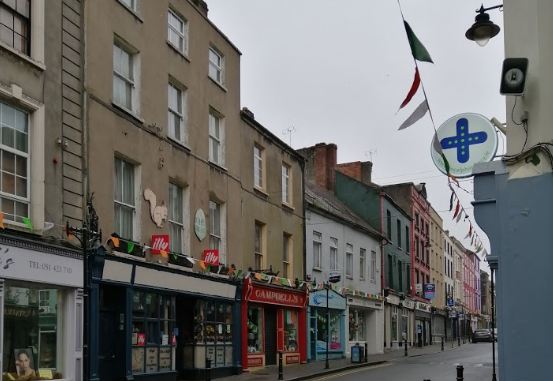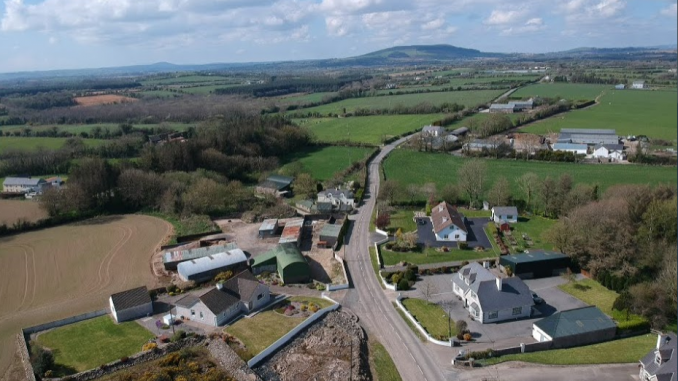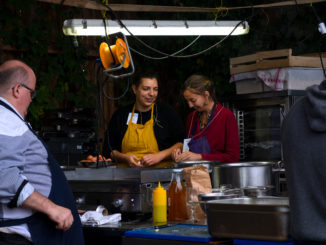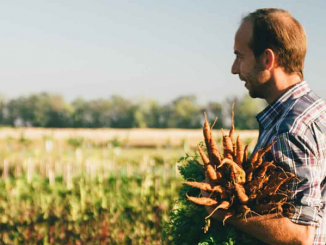
We don’t know yet what the “new normal” will look like, but we do know that remote work can work – with the right supports. When the Covid-19 crisis hit, employers and workers cobbled together new systems of remote work almost overnight. In Ireland, the pull of jobs in the city and abroad has hollowed out rural areas, and young graduates have little incentive to return home after completing their studies in Dublin. Many young graduates from rural areas would jump at the chance to stay put and pursue their careers remotely, rather than facing crippling rents in Dublin, or a crippling commute. Now is the time for a paradigm shift in working life to rejuvenate rural communities, argues Luke Kent.
The Covid-19 crisis, like all other crises, will subside. It may not be tomorrow, it may not be this week and it may not even be this year, but eventually our lives will return to normal, or at least some variation of normal. The “new normal” as it is now referred to. This brings with it opportunities for the daring and courageous to perhaps correct some of the flawed features of our old normal.
Growing up in Rural Ireland
Growing up in rural Ireland, I have long recognized the steady decline of communities in the rural areas of our island nation as a source of great imbalance and distortion in our society.
As a boy I played for the local team, and the month of May would usually have marked the beginning of a summer spent in the back seat of my teammates’ parents’ cars. Our journeys would usually begin at our local Gaelic Athletic Association (GAA) pitch and see us drive through the “village”, passing the closed Post Office, closed Garda (police) station, boarded up hardware store and derelict garage. By the time we arrived in the away team’s dressing room we would have passed through (or increasingly, around) countless similar villages.
Fast forward to May of 2020 and I am preparing for online exams, which will mark the end of my master’s degree in economics. County Wexford, for all her beaches and natural beauty, does not present many opportunities for young economists. Or accountants. Or computer scientists. No, for those opportunities I, like my peers, will need to be in Ireland’s capital, Dublin, with its exorbitant rents and congestion.
This need not be the case. And as we slowly “open up” following the Covid-19 crisis we ought to consider the Ireland that we wish to reopen. As I sit here at home in the hinterlands of New Ross I am roughly 5 miles from the ancestral home of former US President John F. Kennedy. I am reminded of a fitting quote from the great man: “When written in Chinese, the word ‘crisis’ is composed of two characters. One represents danger and the other represents opportunity.” We are fighting through the danger. Now we should talk about the opportunity.

Vacant Houses in a Housing Crisis
Consider a scenario where even a fraction of Dublin’s rural migrants return to live in their native rural areas and work from home.
The current transfer of wealth from young workers to landlords in the capital would be significantly reduced. With good Wi-Fi, remote workers could live with their parents and set aside the money saved (after contributing to groceries) for a deposit on a mortgage. Or rent a house with three or four friends – it would cost a fraction of what it would cost in the capital’s hot spots for young rural migrants, such as Drumcondra or Ranelagh.
Ireland’s regional towns are teeming with vacant houses, in part thanks to our propensity for building them. As an extra kicker, by reducing the demand for housing in the capital, prices would fall for those who wish or need to live there. Increased remote work could be part of the solution to the current housing crisis in Ireland.
Employers would also save on equally expensive Dublin office space. “Hot desking” was a thing even before the Covid-19 crisis. This is a situation where a company of say 60 employees operates out of an office that can fit 40. Workers rotate the use of desks, you take your laptop home, or put it in a locker at night. Anyone not assigned to be in the office that day works from home. Companies stand to save thousands of euros. In terms of their in-house operations, companies also stand to save money by downsizing middle and upper management. It is becoming clear during this crisis that many of these highly paid management roles may be unnecessary.
Breathing New Life into Rural Communities
These people now living in rural Ireland would be spending their wages in their local economies: getting their cars fixed, getting haircuts and some day building houses and paying for piano lessons. The cohort of people with jobs in Dublin-centric industries living and “consuming” in their local communities would allow people to start successful businesses in rural Ireland – as opposed to being forced to emigrate to Sydney or Vancouver.
So, the economic incentives are there for this paradigm shift of working life. But money isn’t everything. There are also societal and environmental benefits aplenty.
Remote work as an alternative to rural flight would breathe new life into rural communities. Aside from the huge amount of additional money being spent in the local economy, family and community bonds would be allowed to remain intact while ambitious young people still pursue their career goals.
A generation of young Irish people would be as much a part of their local communities as they would be the professional community in Dublin. Parents and grandparents would no longer keep in touch merely on weekends or over the phone. Friendships forged in school could continue into adulthood as opposed to being relegated to the odd “you’re up in Dublin these days are ya?” conversation.

Costs of Commuting
Rural dwellers don’t always move to Dublin. Many of them commute to the capital at great environmental and personal cost. Ireland lags behind on climate action, and we often cite the percentage of our population living in rural areas as a reason for our high carbon emissions. Dublin has the fifth highest commuting times in Europe – 25% of Dublin workers commute from outside the city and suburbs. Emissions from transport would plummet if these commuters could not just live, but also work, rurally.
Hours spent sitting in traffic or on public transport place immense strain on mental well-being and relationships with loved ones. Young children around the country would enjoy vital quality time with their parents in the evenings as opposed to just a hug before bed. The Covid-19 crisis presents an opportunity to address the issues that we have been facing as a nation for years.
Policies to Pull It Off
This will not just happen on its own. Politicians and policy makers need to be creative and daring for us to pull this off. Tax incentives should be used to encourage employers to allow workers to work from home. Of course, these companies will need their employees to meet sometimes in teams or departments. Opportunities would exist for entrepreneurs to provide rentable meeting spaces to companies for meetings. Better to rent a space every so often than have an on-site meeting room vacant 95% of the time.
Discussions should begin immediately between employers, employees and state bodies if we are to change the way we work and live. Our country will open again soon. Things will go back to normal. I believe, however, that we need to have a serious talk about what normal is in Ireland.
More on Ireland
Covid19, Meat Processing Plants and the Limits of the Intensive Farming Model
Farming as its Ferment to be? Korean Natural Farming in Ireland
Rural Dialogues | Not Necessarily Money – farm renewal and (inter)generational considerations
Farm-2-Fork 2030: A Truly Green Farming, Food and Rural Vision for Ireland
Rural Dialogues | Stochastic System Collapse Part 2 – the Social and Solidarity Economy Alternative
Letter from a Farm | Saving Carrottop – the Life of a Cow in Mayo





